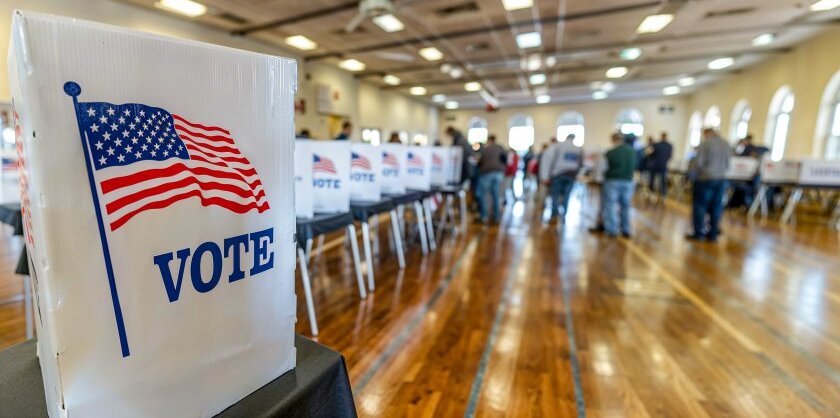What’s happened in Wyoming illustrates how closed primary elections shut too many voters out of the electoral process, intensify political polarization and raise important questions about funding these elections.
A former federal judge explains why courts aren’t the fastest or clearest way to solve election disputes.
At the canvass of the Gillespie County GOP primary, election workers said poor penmanship, data entry lapses, transposed numbers and simple math mistakes led to discrepancies.
The idea behind the system was to help push candidates toward the broad middle of the electorate. The latest Senate contest exposed its flaws.
Make Liberty Win sent mailers throughout Ohio attacking Republican incumbents and sowing confusion among voters.
A group backing a potential ballot question that would classify app-based drivers as independent contractors rather than employees has raised more than $6.8 million last year exclusively from non-resident companies.
The city’s own study about Mayor London Breed’s proposal to make it more profitable to turn empty offices into new homes found that it is unlikely to drive significant savings under current market conditions.
California workers are allowed to sue employers for themselves and others if they believe they’ve been victims of wage theft under a unique state law. But a new ballot measure would replace the law if approved in November.
State Rep. Jon Hansen has proposed making it easier for people who have signed a ballot initiative petition to be able to remove their signatures, which he says is “practically impossible” now.
Bomb threats, misinformation, AI advancements and ransomware are just some of the challenges election officials will deal with this year.
Even with the lessons from 2020, election administrators find themselves in unknown territory this time around.
Since the last presidential election, 16 million Americans have reached voting age for the first time. Some experts believe millennials and Gen Z voters will bring a lot of sway to November.
Legislatures and governors are not afraid of undermining — or even downright repealing — citizen initiatives that win at the ballot box.
State lawmakers approved their own salary increases, including for future governors, and expanded the voting age to include some 17-year-olds. But they deferred a casino smoking ban, expanded family leave, book bans and more.
According to unofficial numbers released by the state, organizers have collected 910,946 signatures, nearly 20,000 more than necessary to reach the signature threshold. The measure’s language still must be approved by the state supreme court. If it passes, abortion rights would be enshrined in the state’s constitution.
Only 75,490 votes were cast nationally for a candidate other than Joe Biden or Donald Trump in the 2020 presidential election. And yet, 1,500 voters have already registered with Oregon's newest party: the No Labels Party.
Most Read
















